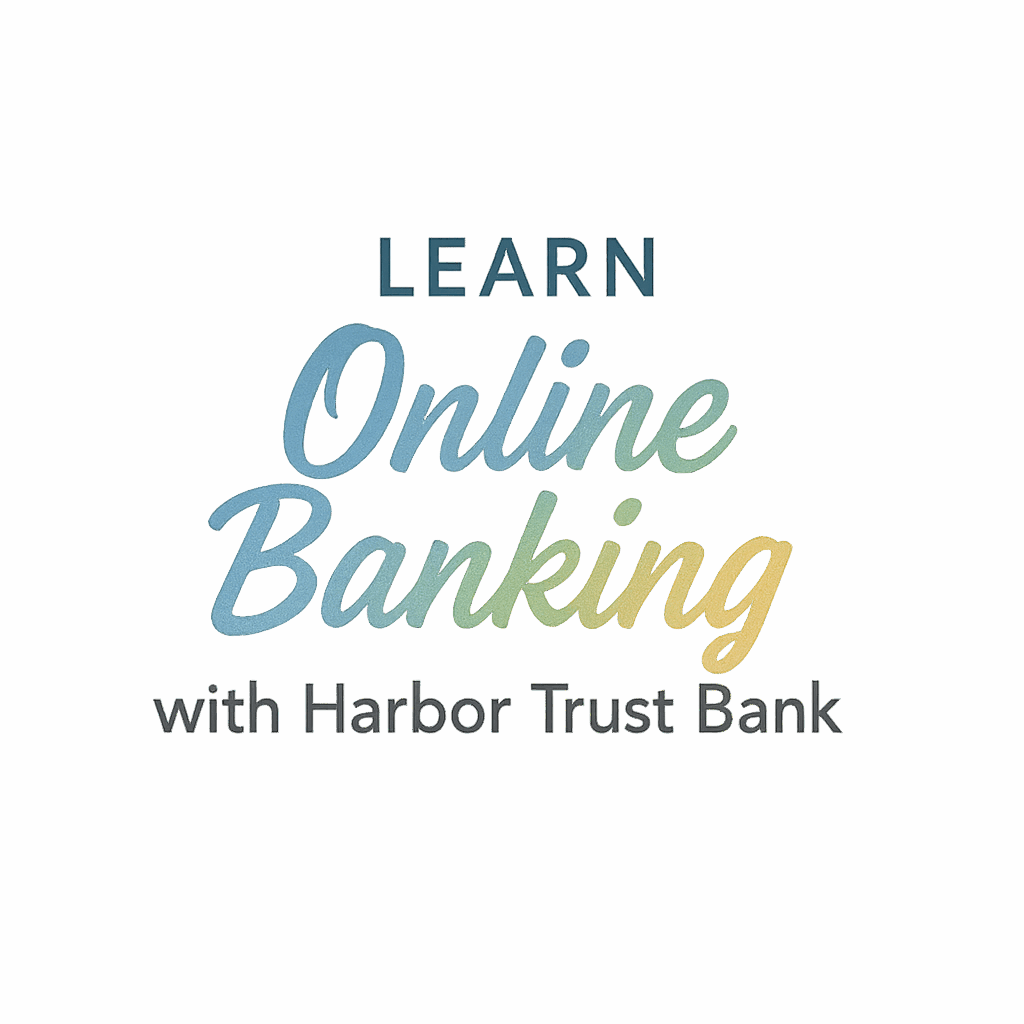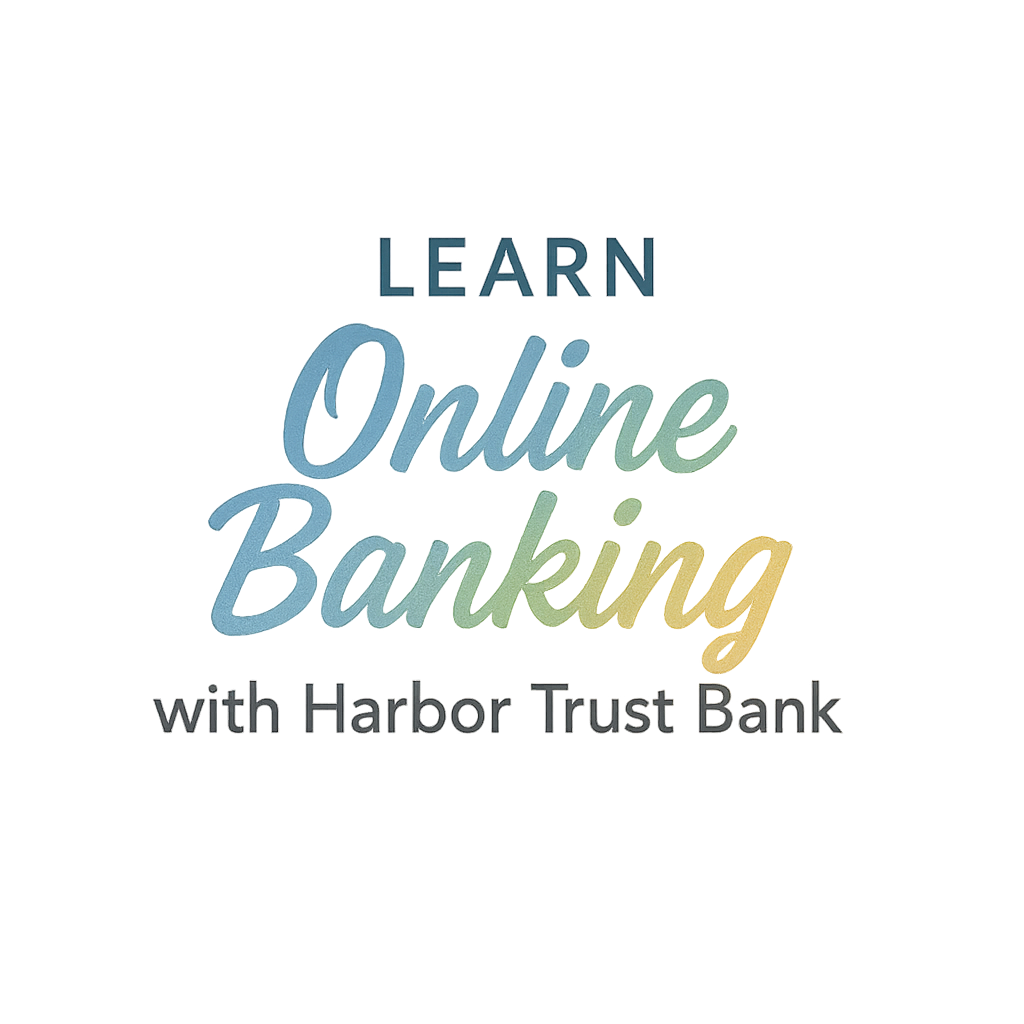Introduction: Why Online Banking Terms Matter
Let’s be honest—online banking is part of our everyday life now. From transferring rent to splitting dinner bills with friends, we’re doing it all digitally. But are you truly fluent in the language of online banking? If you’ve ever stared blankly at phrases like “ACH Transfer” or “Overdraft Protection,” you’re not alone.
Knowing these terms isn’t just about sounding smart—it’s about keeping your money safe, making smarter choices, and avoiding costly mistakes. This guide breaks down the 10 essential online banking terms every beginner or seasoned user should know.
Whether you’re managing your side hustle income, paying bills, or growing your savings, understanding these terms gives you the upper hand.
1. Online Banking
What It Really Means
At its core, online banking (also known as internet banking or digital banking) refers to managing your money using your bank’s website or mobile app. No lines. No teller windows. Just you and your screen.
Online banking lets you:
- Check your balance in real time
- Transfer funds between accounts
- Pay bills
- Deposit checks
- Track transactions
And it all happens without stepping foot in a bank. It’s the future of finance, and frankly, the present too.
Benefits of Online Banking
So why is everyone talking about it? Because it’s:
- Convenient: Bank from anywhere—even your bed.
- Fast: Transactions process quicker than traditional banking.
- Secure: Encrypted tech keeps your data protected.
- Efficient: Automated tools make managing money easier.
Want to set your studio’s financials up for success? Check out how to streamline your operations here: Recording Studio Business Planning
2. Two-Factor Authentication (2FA)
Why 2FA Is Essential
Have you ever logged in and been asked for a code sent to your phone? That’s 2FA in action. It’s a simple security measure that uses two forms of verification:
- Your password (something you know)
- A code or fingerprint (something you have or are)
How 2FA Keeps You Safe
Think of it as a double-locked door. Even if someone steals your password, they can’t get in without that second key. When dealing with your finances—especially online—it’s non-negotiable.
3. Digital Wallet
Understanding Digital Wallets
A digital wallet is a virtual way to store your payment methods securely. You’ve likely used one if you’ve ever paid with your phone at a store.
Examples of Popular Wallets
- Apple Pay
- Google Wallet
- PayPal
- Venmo
Digital wallets make online banking faster and contact-free, but they also add an extra layer of encryption and user verification. Handy, right?

4. Routing Number
What Is a Routing Number?
A routing number is a nine-digit code that identifies your bank. It’s used to direct payments and transfers to the right place.
Where To Find It
It’s usually at the bottom of your checks, alongside your account number. You’ll also find it in your online banking dashboard.
Knowing this is key for setting up direct deposits or sending money to others safely—like when you’re paying session musicians for a project. (Check out Recording Studio Equipment & Tools for gear that makes collaboration seamless.)
5. Account Number
Not Just Random Digits
Your account number is unique to you. It links directly to your checking or savings account, much like your name links to your email.
Routing Number vs. Account Number
Here’s a quick analogy:
Routing number = bank’s address
Account number = your apartment number
Both are needed to send the money to the right place.
6. ACH Transfer
What Is an ACH Transfer?
ACH stands for Automated Clearing House. It’s a system that lets you send or receive money electronically between banks.
It’s used for:
- Direct deposits
- Bill payments
- Transferring funds between your accounts
When Should You Use It?
Anytime you’re handling money that doesn’t need to move right now. ACH is super reliable and often free.
Want to learn how ACH transfers could improve your billing system? Explore more in our Recording Studio Management & Growth guide.
7. Mobile Check Deposit
Snap, Send, Done!
With mobile check deposit, you can deposit checks by taking a photo of them with your banking app. It’s convenient, fast, and secure.
Safety and Limits of Mobile Deposits
Be sure to endorse your check properly and keep it for a few weeks in case there’s an issue. Most banks have deposit limits, so it’s not ideal for big checks—but for that freelance voiceover gig? Perfect.
8. Bill Pay
Automate Your Bills Like a Boss
Bill Pay is your online banking dashboard’s MVP. It allows you to schedule recurring or one-time payments to:
- Credit cards
- Utility companies
- Vendors
- Freelancers
Set It and Forget It? Not Quite
While automation is awesome, check regularly to make sure:
- Payments go out on time
- No unexpected charges
- Enough money is in the account
Avoid late fees—your future self will thank you.
9. Overdraft Protection
What Is It and Should You Use It?
Overdraft Protection kicks in when you spend more money than you have in your account. Your bank covers the transaction to prevent embarrassment or penalties.
The Pros and Cons
✅ Pro: Avoids declined payments
❌ Con: Usually comes with a fee
Use it wisely or keep a budget that prevents overdrafts altogether. (A great tool if you’re managing music business income from streaming and session work.)
10. Encryption
What Encryption Really Means
Encryption scrambles your data so that only the right people (a.k.a., you and your bank) can read it. Think of it like speaking in a secret code that hackers can’t understand.
Why It’s the Backbone of Online Banking
Encryption ensures that:
- Your login credentials are protected
- Your financial transactions stay private
- Hackers stay locked out
That green padlock in your browser? That’s your cue that encryption’s doing its job.
Bonus Tip: Keep Learning and Stay Safe
Technology evolves fast, and so do online banking tools. Make it a habit to:
- Read your bank’s updates
- Enable all security features
- Stay informed about fraud alerts
Want to grow your financial knowledge in a creative business? Explore tips for creatives here.
Conclusion
There you have it—the 10 online banking terms that can totally change the way you interact with your money. Mastering these terms isn’t just helpful; it’s necessary in today’s digital world. Whether you’re managing personal funds or business income from your recording studio, knowing these basics keeps you confident, secure, and in control.
Online banking doesn’t have to be intimidating. When you understand the lingo, you unlock more control over your money—and your future.
For more smart tips, visit the 4AM Recording Studio blog where we break down more than just music.
FAQs
1. What is the difference between ACH and wire transfers?
ACH transfers are slower but often free; wire transfers are faster but usually cost money.
2. Can I use mobile check deposit for any check?
Most personal checks work fine. Government checks, cashier’s checks, or large amounts may have restrictions.
3. Is 2FA really necessary for my bank account?
Absolutely. It’s your second layer of defense against fraud.
4. What’s the safest way to bank online?
Use a secure connection, enable encryption, and never log in over public Wi-Fi.
5. Are digital wallets safe to use for business payments?
Yes, when used correctly. Always double-check the receiver and enable passcodes or biometrics.
6. Can I automate my rent payments with online banking?
Definitely. Set it up using the bill pay feature or recurring ACH transfer.
7. Where can I learn more about financial tools for creatives?
Right here: Recording Studio Setup Basics and Recording Studio Management & Growth


